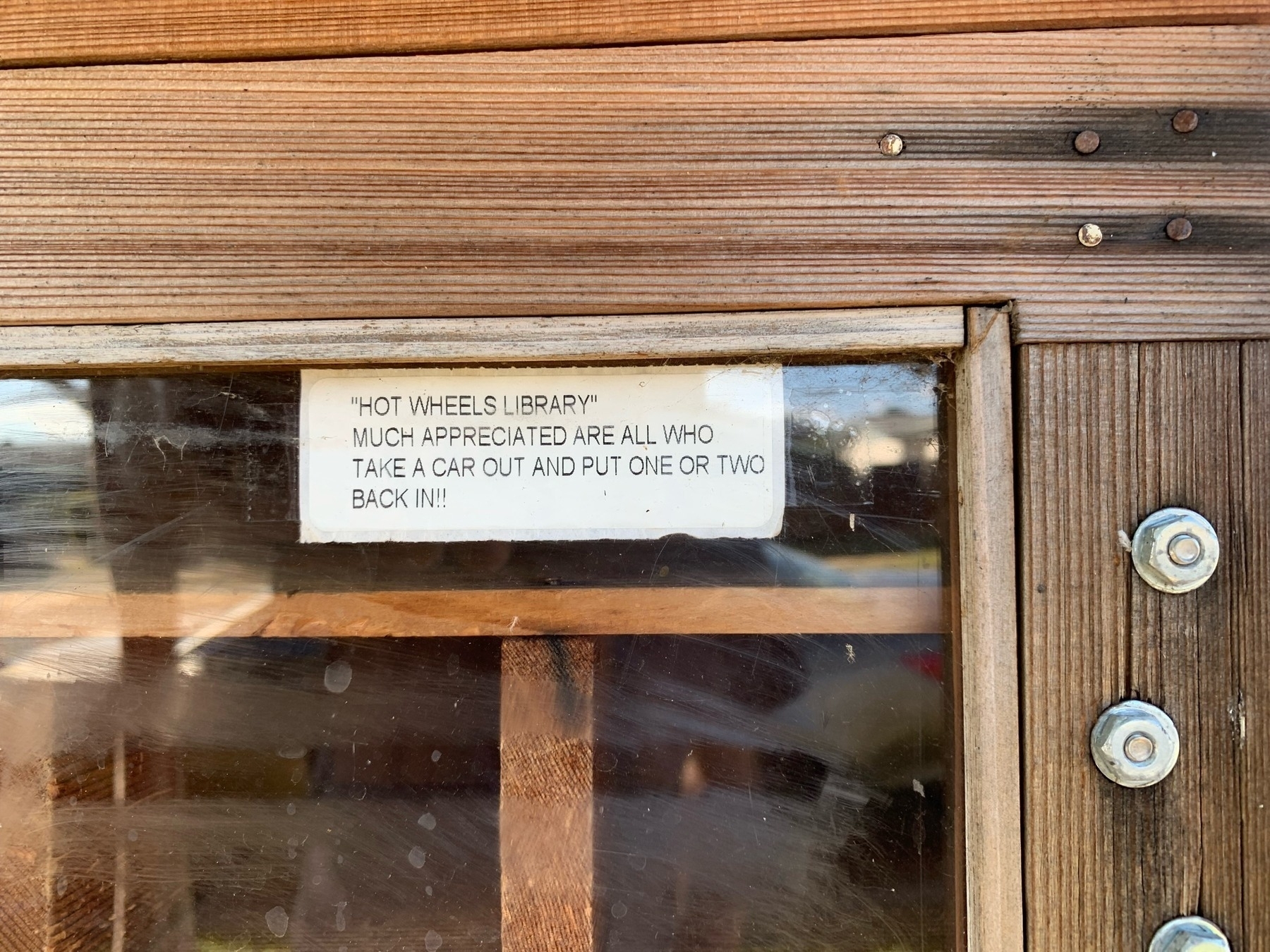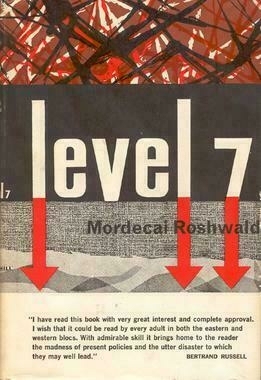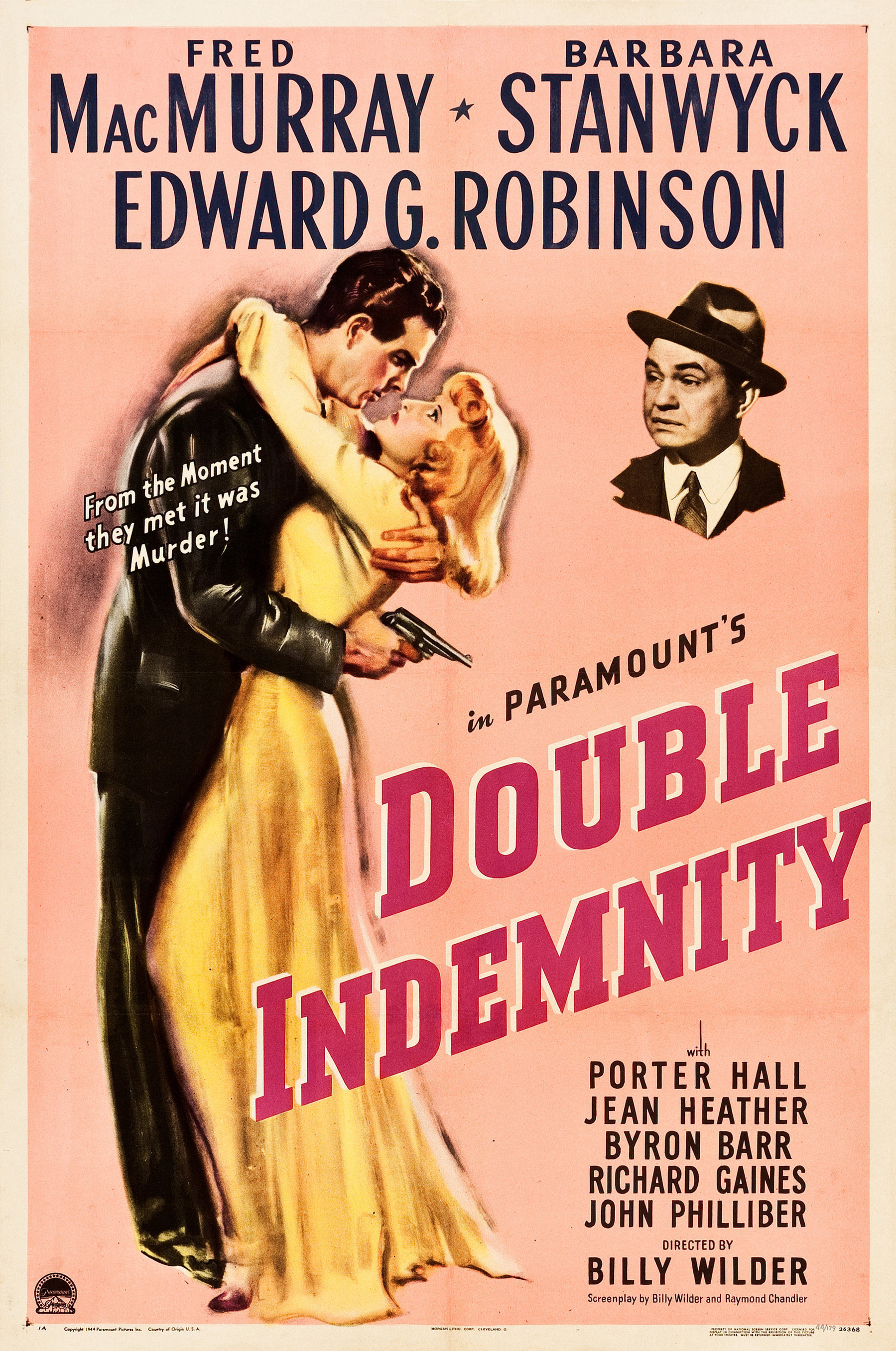Things I saw while walking the dog. We tried a new neighborhood today, Allied Gardens









Things I saw while walking the dog. We tried a new neighborhood today, Allied Gardens









I’ve passed this roadside shrine dozens of times over the years. I don’t think I’ve read the plaque before.


I’ve started reading Doonesbury from the very beginning, and I plann to keep going until I catch up to the present day. Here’s the very first strip, from October, 1970.
So far I’m up to December 1970. Over that time, you can see Garry Trudeau quickly improving as a writer and slowly improving as an artist. Within three or four years he’d be doing detailed drawings and sharp satire about Watergate.
The strip was initially published in the Yale student newspaper, when Trudeau was himself an undergrad there, and it’s about as sexist as you’d expect from an Ivy League college boy of the Animal House era. Trudeau evolved quickly on that front too.
I read the strip religiously in high school, then got out of the habit, though I picked it up intermittently over the subsequent decades. I haven’t seen it in years, and I’m keeping away from he current strips for now. I want to catch up with them.
Ask a Manager: Should you list hobbies on your resume?
A long thread of stories about people bombing job interviews, on Ask a Manager:
When asked a (completely stupid question) about how I would react if I woke up suddenly in a cage with a tiger, I asked if the tiger was alive.
This wasn’t the right line of questioning as per the interviewer’s surprised expression.
When asked to elaborate, I said “If it’s dead, cry but no real panic. It’s alive, cry and panic and die.”
Response:
I started thinking of further clarifying questions I would ask in this interview scenario and realized I was just Dungeons-and-Dragonsing my way through it:
“What is the condition of the tiger? Has the tiger noticed me yet? What can I perceive outside of the cage? Can I see the door to the cage from where I’m sitting? Can I hear or see the presence of anyone else outside the cage? Does the cage appear to be locked or only shut? Is the tiger between me and the door to the cage? Okay, given that knowledge and my Strength and Dexterity (not good), I…”
The myth of rural America: “ … the rural United States is, in fact, highly artificial. Its inhabitants are as much creatures of state power and industrial capitalism as their city-dwelling counterparts. But we rarely acknowledge this … because many of us – urban and rural, on the left and the right – ‘don’t quite want it to be true.’”
While walking the dog this morning, I saw this house. These guys own Halloween



Overheard: I don’t want to brag but I walked into a room and remembered why I walked in.
Can I list “speed grocery shopping” as a skill on my LinkedIn profile? Because I slay at that.
Last night we watched the first episode of “Lessons in Chemistry,” about Elizabeth Zott, a chemist in 1951 who is forced to take a humiliating job as a lab tech because of sexism and who ends up hosting a highly successful cooking show on TV. The show stars Brie Larson (who is not, I subsequently learned, the same person as Alison Brie).
Elizabeth is determined and humorless and takes up with Calvin Evans, a male chemist, who is also determined and humorless and is the only person who sees her for who she is. Both characters are endearing.
The costumes and period designs are beautifully done. Perhaps too perfect, but that’s typical of period shows. All the cars are clean and in mint condition; clothes are neat, clean, pressed, and tucked in. In real life, in 1951, you’d see a lot of wrinkles and untucked shirts and the occasional stain, just like today. Some cars would be nice; some would be beaters. But not in the world of “Lessons of Chemistry.” That’s fine.
I liked the show but did not love it. I was not hooked, but I’ll give it another episode, and I expect to enjoy it more over time. Julie loved it from the beginning—she just read the novel it’s based on and loved that.
One unbelievable note jumped out: Calvin is presented as having moderate-to-severe allergies. He becomes dramatically ill, simply smelling a woman’s perfume. He lives on saltine crackers and vending machine peanuts. (The vending machine, by the way, is a beautiful midcentury design.) He joins Elizabeth for lunch, and she insists he try the lasagna she made for herself. He plunges in a forkful and pronounces it delicious. As a person with allergies myself, I know that nobody with allergies will try a strange food off someone else’s plate without first inquiring about the ingredients.
“Lessons in Chemistry” has echoes of another recent series, last year’s “Julia,” about the origin story of Julia Child. Also a smart show set in post-WWII America with beautiful period costumes and designs about a strong, smart woman battling sexism to host a successful cooking show.
Today I learned Alison Brie and Brie Larson are two separate people.
Israel’s 9/11 — that’s been the refrain. And I fear that analogy carries more truth than the people making it want it to. Because what was 9/11? It was an attack that drowned an entire country — our country, my country, America — in terror and in rage. It drove us mad with fear.
And in response, we shredded our own liberties. We invaded Afghanistan. We invaded Iraq. Our response to 9/11 led to the deaths of hundreds of thousands of innocent people. It made us weaker. It made us poorer. It made us hated around the world. We didn’t pull our forces out of Afghanistan until 2021, 20 years later. And when we left, we did so in humiliation and catastrophe and defeat, abandoning the country to the Taliban.
Our politics still haven’t recovered from the ravages of that era. It was, in large part, the invasion of Iraq that discredited the Republican Party’s leadership class, leading directly to the rise of Donald Trump. 9/11 created a permission structure in American politics to do incredibly stupid brutal things, and we are still paying the costs. Perhaps we always will be.
…
I think vengeance is a legitimate and even necessary goal here. It cannot be safe to murder Israeli civilians. But vengeance cannot be the only goal. Israelis, no less than Palestinians, deserve peace and security. Those need to be considerations, too. And that requires considering things.
…
The brutal facts of the occupation, the architecture of control, and humiliation, and checkpoints and work permits and blockades that Palestinians live under, it does not justify Hamas’s murders. But it helps explain Hamas’s strength, its persistent appeal to at least some of the Palestinian people. Hamas is built on Palestinian despair. And if you radically increase Palestinian fury and despair, if you create a new wave, a new generation of fathers who lost their sons, and brothers who lost their sisters, and people now dedicated to revenge, have you actually made Israel safer, or have you made Hamas or something like it stronger?
Hardliners feed on each other. Hamas’s political strength has been an excellent excuse for Netanyahu’s government to abandon even the pretense of a real peace process. If Hamas is on the other side of the table, then there can be no peace process because there is no partner for peace. Israel is right that it cannot make peace with Hamas, that Hamas’s actual aim is Israel’s eradication.
…
Hamas and its backers in Iran want this war. They fear the normalization of Israel’s relations with the rest of the Middle East. The misery of the Gazans is and always has been their strength/
…
We’ve spent decades testing the proposition of whether inflicting more punishment on the Palestinians will strengthen the moderates or the extremists in their midst. The answer is known.
…
If you loathe Hamas, and you should loathe Hamas, you should assume that the place they’re trying to lead us is not where we should be trying to go. If you don’t think Netanyahu’s rule has made Israel safer, or more united, or closer to a resolution of the fundamental threats that face it — and it hasn’t — you should not yourself be cowed into trusting his instincts in this moment. That’s a lesson Americans learned, or should have learned, from 9/11, the one we have to pass on now.
Terrorists want you to act in a haze of fury and fear. The only antidote is to open yourself to criticism and second-guessing.
…
There is no country in the world that would not hunt Hamas’s leaders to the ends of the Earth right now if their savagery had been visited upon them. And that is to say nothing of the hostages Hamas is still holding captive. But the idea that you’ll destroy Hamas this way, I doubt it, particularly if this becomes not just a generational trauma for ordinary Israelis, but also for Gazans, with thousands dead and who knows how many maimed and homeless and displaced.
…
The hardliners make each other stronger. Is it possible for the peacemakers to do the same?
Decoder Ring: The Fast Decline of the Slow Dance. Rise and fall of an awkward rite of passage.
Includes a brief history of slow dancing, starting with the waltz, which was hugely scandalous 200+ years ago.
Let me read you a quote here. It’s from a July 1816 issue of the London Times about a ball given by the Prince Regent: “We remarked with pain that the indecent foreign dance called the waltz was introduced at the English court on Friday last. So long as this obscene display was confined to prostitutes and adulteresses, we did not think of it deserving of notice. But now that it is attempted to be forced on the respectable classes of society, we feel it a duty to warn every parent against exposing his daughter to so fatal a contagion.
Jacob Mikanowski, author of the book “Goodbye, Eastern Europe: An Intimate History of a Divided Land,” talks with Tyler Cowen about Eastern Europe, including “differences between Eastern and Western European humor, whether Poles are smiling more nowadays” and “why Stanisław Lem hasn’t gotten more attention in the West.”
Could Stanisław Lem be the most underrated sage of the AI age?
I remember Lem was celebrated in literary circles in the late 70s or 80s, but we haven’t heard much about him since. I read several of Lem’s books and stories, enjoyed them and found them thoughtful.
U.S. Army, Navy and Air Force Struggle for Recruits. The Marines Have Plenty.
When asked earlier this year about whether the Marines would offer extra money to attract recruits, the commandant of the Marine Corps replied: “Your bonus is that you get to call yourself a Marine. That’s your bonus.”
Elizabeth Spiers: I Don’t Have to Post About My Outrage. Neither Do You. I agree. Nobody’s required to post an opinion about Israel and Palestine.
Robin Sipes was feeling sad. Her doctor prescribed her a cat. Her doctor said he wrote it down “because people sometimes don’t follow your instructions.”
These five toys are regular finalists for Hall of Fame honors. Now fans can vote one in. The pogo stick, the Fisher-Price Corn Popper, My Little Pony, PEZ dispensers, and Transformers.
Just a couple of things I saw while I was walking the dog this morning.


I was having fun with a telemarking scammer and they hung up on me and I’m disappointed.
CALLER: “I’m calling from [mumble] about an order for an Apple MacBook Pro and Apple AirPods that you placed and that is being delivered to Houston, Texas.”
ME [slowly, confused]: “It’s for a … apple?”
CALLER: “Yes, an Apple MacBook Pro—a laptop computer—and Apple AirPods. You will be charged $1,667. Did you place that order.”
ME [slowly, still confused]: “… Apples don’t have ears?”
Then they hung up. Damn, I was just getting started.
“I had to quit a job because of aggressive nesting geese.” I have rediscovered “Ask a Manager.”
I was having system problems several months ago, the solution for which was to reinstall the operating system. Now the problems are back, so I upgraded to Sonoma, which will either fix the problems or give me ALL NEW UPGRADED problems.
Where does the coyote get money to buy all that stuff from Acme? I don’t know how much a 25 foot tall slingshot costs but I bet it’s expensive.
Lovely statement from Goddard’s co-star Bill Mumy, who played Will Robinson. Variety:
R.I.P. to Mark Goddard. A truly beloved friend and brother to me for 59 years. I knew this was coming for the past few months. Shortly after a great phone chat he and I had on his 87th birthday in late July, I became aware that I would most likely never see or speak with him again. The last words we exchanged were “I love you.”
The show was initially more of a straight action-adventure, with Goddard’s Major West as a romantic lead opposite Judy Robinson, played by Marta Kristen. But when “Batman” took off in the ratings, “Lost in Space” went for camp and there wasn’t much for Major West to do other than yell at Doctor Smith.
In his 2008 memoir, “To Space and Back,” [Goddard] referred to his space uniform, his wardrobe for the show, as “silver lamé pajamas and my pretty silver ski boots.”
Goddard left showbiz, went back to college, and became a teacher of special needs kids.
Goddard lived a life of service, bringing happiness to a lot of people (including me) and then as a teacher. A good life.
That was a bad idea. I’ve done it several times previously and it was a bad idea those times. I expect I’ll do it again because I want it to be a good idea.
The word ‘But’ asks to not appear in these sentences. Alexandra Petri: “The word ‘But’ has been stunned to find itself appearing in an increasing number of sentences that begin ‘The killing of children is never acceptable … ‘“
The Most Iconic Vintage Dessert from Every Decade
1940s: Bread pudding.
I love bread pudding. I eat it several times a year.
Unfortunately, the last time we got bread pudding it wasn’t great. We got it take-out—a massive brick. I froze most of it, but made the mistake of not breaking it up into individual portions beforehand, further diminishing the likelihood that I will ever eat that bread pudding.
Future archeologists will no doubt wonder at the find.
A 21-year-old computer science student from the University of Nebraska-Lincoln won a global contest to decipher the first text inside a burned, blackened scroll from the ancient Roman city of Herculaneum. The student used X-Ray computed tomography (CT) scanning and an AI algorithm to detect Greek letters on several lines of the rolled-up papyrus. The letters spelled out the word “purple.”
Praying that Israel exercises compassion, clemency, pity, forbearance and love.
Mary Lou Retton Crowdfunded Her Medical Debt, Like Many Thousands of Others
But unlike the Olympic gymnast, most people don’t raise enough money to cover their costs.
Our healthcare system is a disgrace.
The Progressives Who Flunked the Hamas Test.
Helen Lewis at The Atlantic:
Fitting Israel into the intersectional framework has always been difficult, because its Jewish citizens are both historically oppressed—the survivors of an attempt to wipe them out entirely—and currently in a dominant position over the Palestinians, as demonstrated by the Netanyahu government’s decision to restrict power and water supplies to Gaza. The simplistic logic of pop intersectionality cannot reconcile this….
I donated to the United Jewish Appeal Israel Emergency Fund to support the people of Israel. The fund provides: “Emergency cash assistance for victims of terror. Critically needed trauma counseling. Care for children in shelters. Burial expenses. Funds to relocate people to safer areas.”
Tyler Cowen interviews the fascinating Ada Palmer, Hugo Award winning author of the “Terra Ignota” science fiction series, Renaissance historian at the University of Chicago, musical composer, consultant on anime and manga, and more.
She talks about:
and much more
This is a podcast I had to stop listening to frequently, just to think about what Palmer last said.
“I came to realize that my Woody was my impression of Tom yelling at his kids.”
On the Twenty Thousand Hertz podcast: Soundalikes, or voice doubles, “are voice actors who perform as characters that were originally played by someone else.” The soundalike replaces a big superstar like Robin Williams or Julia Roberts for video games, rides, toys, TV shows, etc.
This podcast features an interview with Jim Hanks, a successful character actor and soundalike who specializes in playing Woody from “Toy Story” when brother Tom Hanks is unavailable.
Sometimes I want a nice turkey sandwich but I do not want the side order of doggy drama so I eat something else instead.
I was already losing interest in Twitter when Musk took over. The constant arguing and anger were wearing me down. Musk said he saw Twitter as an arena for combatting ideas. The signal I got from that is that he wanted more arguing and anger. So I gradually started doing Twitter less and less until now I only check it a couple of times a week and I don’t post there. I do have a list of meme and comedy accounts on Twitter that I check regularly.
Hard-Core Sleepers Obsess Over Their Snoozing Stats
… for millions, chasing winks with the latest sleep-measuring technology has become a nighttime sport, complete with sleep scores and strategies on how to best sack the competition. … “I can see that on days when I tape my mouth during sleep, I have a 7% higher recovery score…. “
For more than 70 years, filmmakers have been reusing the sound of a particular scream. Many people even know it by name—the Wilhelm Scream.
“The scream is usually used when someone is shot, falls from a great height, or is thrown from an explosion.” It first appears in the 1951 Western “Distant Drums.” It appears in the 1954 “A Star Is Born,” “Star Wars,” “Toy Story” and on and on in many, many movies, TV shows and video games.
The actor who voiced the scream was likely Sheb Wooley, who also voiced the 1958 hit novelty song “The Purple People Eater.”
I listened to this podcast episode about the Wilhelm Scream Friday morning. That night, we watched the 1993 Sylverster Stallone movie “Cliffhanger” and I’m pretty sure I heard the Wilhelm Scream in it.
The One Year podcast looks back at the 1955 Davy Crockett craze and how it saved the then-struggling Disney studio and “created the first baby-boom phenomenon,” almost by accident.
Sabrina Schnur, a reporter for the Las Vegas Review-Journal, faced death threats and anti-Semitic attacks from a bridade of right-wing boneheads who think that she downplayed the hit-and-run death of retired police chief Andreas Probst, when in fact she was the person who reported that it was a hit-and-run rather than an innocent accident.
Of course, billionaire bonehead Elon Musk joined the attacks.
smh when I think I used to feel obliged to have opinions about global crises based on a few hours of reading the news and to share that opinion with the world on the Internet.
Digital Equipment Corp. (1957-98) was a titan of the computing industry for decades, aid its technology legacy is still felt today. And it was influential in my personal life.. When Julie and I met, Julie was doing PR for DEC and I was covering the company as a journalist. Shocking conflict of interest—but she had stopped doing PR for them several weeks before we started dating.
For the lonely, a blurred line between real and fictional people
In lonely people, the boundary between real friends and favorite fictional characters gets blurred in the part of the brain that is active when thinking about others, a new study found.
Researchers scanned the brains of people who were fans of “Game of Thrones” while they thought about various characters in the show and about their real friends. All participants had taken a test measuring loneliness.
Who picked Petyr Baelish or Sandor Clegane as their imaginary bestie?
I Was a Pop-Tarts Taste Tester. Writer Laura Holson remembers her family regularly received mystery boxes when the product launched 60 years ago.
I did not like them,” said my sister Mary. They didn’t appeal either to my sister Gondie, but gave her bargaining power on the school playground. “You could eat one Pop-Tart and trade the other for a candy bar,” she said of the two-pack. For my part, I would eat them only if my mother cut the edges off, leaving a ravioli-size square of frosted raspberry jam.
Maybe it’s not surprising that none of us eat them now. “But it was a great memory,” said my brother Michael.
Long gone, DEC is still powering the world of computing. Digital Equipment Corp. was a computing giant that declined until it essentially disappeared in the late 1990s. But its technology legacy continues. By Andy Patrizio at Ars Technica.
How magical combat can win the next election
For the last half-century or so, the main US political parties have spent all their time and energy ranting about the bad things that the bad people in the other party are doing, and neglected to offer any positive vision of their own.
Stormtrooper Syndrome has seduced the West.
The West has a bad case of “Stormtrooper Syndrome”—utter faith and certainty that we are the Good Guys, the Good Guys always win, the Bad Guys are incompetent buffoons and we’ll just think our way out of crises like climate change at the last possible moment.
This syndrome is exacerbated by elites who never, ever suffer consequences of their actions.
Irish people not being superstitious. I am not posting this to ridicule Irish people. I feel the same way about superstition.
Congressional Term Limits Might Break Congress. Jamelle Bouie makes a case against legislative term limits.
We have legislative term limits here in California and it’s not great. You end up with government by bureaucrats and lobbyists. The solution to legislative calcification is to make challengers more viable. Make incumbents have to work to get re-elected.
Fervently hoping friends and business associates in Israel remain safe.
A wonderful, playful look at more than a century of Jewish ethnic humor in Hollywood, triggered by the minor (and silly) controversy over Bradley Cooper, who is not Jewish, portraying Leonard Bernstein while wearing a prosthetic nose.
Author Jody Rosen, writing in The New Yorker notes that much Jewish ethnic humor, particularly at the turn of the 20th Century, gave gentiles an opportunity to ridicule Jewish immigrants, often cruelly. But this form of humor was different from other minstrelsy in that it was often performed by Jews, and Jews themselves loved it.
People are saying “whom of which” now. Alrighty then.
Rand = Buffy.
Moiraine = Giles.
Lanfear = Cordelia.
Mat = Xander.
Egwene = Willow.
Hopper = Oz.
Liandrin = Principal Skinner.
New PEN America Report Documents Surge in ‘Educational Intimidation’ Bills
a new report released this week documents the rise of a new wave of state legislation designed to force librarians and educators to self-censor.
LGBTQ content is particularly targeted, as are LGBTQ creators. And laws require teachers to out LGBTQ kids to their parents.
The Republican Party believes it’s the role of government to police sexual purity. That’s wrong.
I saw this squirrel chilling on the fence in our backyard.
If you gaze long enough at the squirrel, the squirrel gazes back at you



Finished reading: Void Moon by Michael Connelly 📚Starts slow but but worth staying with. Builds to unputdownbability.
Things that don’t get you kicked out of GOP leadership:
Things that get you kicked out of your position in the GOP:
If the Democrats can sign on six moderate Republicans, the Democrats can pick the next speaker. It’s a long shot, sure, but in today’s political climate I’m not ruling anything out.
Because today has been weird, I am just now having my first coffee of the day, at nearly 1:30 pm.
Also, my will to live has been restored.
I believe these two events to be not coincidental.
I got the RSV vaccine, flu shot and Covid booster Saturday afternoon and it flattened me the rest of the weekend. I slept 16 hours yesterday. On the other hand, now I’m fine, and sleeping a lot, reading a lot and watching a couple of movies are a great way to spend the weekend.
I got the flu shot, Covid booster and RSV vaccine all at once yesterday, and that flattened me for nearly a full day. Feeling better now.
I remember when doing shots had a similarly debilitating effect but the first hours were more interesting and enjoyable.
I usually work at a standing desk but today I did some work sitting on the couch and learned I can write for short bursts while the dog is licking my face.
Later, the dog booped the keyboard to let me know she thought there should be a comma there.
There did not need to be a comma there. Dogs are bad at punctuation.
Occasionally I get annoyed at Inoreader’s quirks and I try alternatives for reading feeds. But then I come back to Inoreader. Nothing beats it for powering through many headlines quickly to zero in on the articles I actually want to read.
News about retrieving samples from an asteroid have got me thinking about a Lovecraftian eldritch horror that has been stranded on a rock in space for billions of years and has anger management issues.
”Level 7,” by a Ukrainian-born Israeli writer named Mordecai Roshwald, is written in the first person by a modern soldier whose name was taken away from him by the state, and is now designated only as X-127. He lives in an underground military complex, and his sole job is the push the buttons that launch the missiles in the event of nuclear war. X-127’s nation, and that nation’s enemy, are intentionally left unidentified.
The residents‘ lives are regimented and standardized, with the people reduced to little more than machines themselves. And yet I found X-127’s little world fascinating, and weirdly appealing.
Next paragraph is a spoiler—cut-and-paste it into Rot-13.com to read:
Va gur zvqqyr bs gur abiry, gur rarzl angvbaf unir gurve ahpyrne jne, naq rirelobql ba gur fhesnpr vf xvyyrq. Gura gur ahpyrne ernpgbe gung cbjref gur haqretebhaq pbzcyrk ortvaf gb yrnx enqvngvba, naq gur erfvqragf ortva gb qvr bar ol bar. K-127 vf gur ynfg fheivibe, naq ur qvrf ng gur raq bs gur abiry, fpenjyvat gur svany jbeqf vagb uvf wbheany. Gung ohttrq zr jura V jnf n obl—vs gur ynfg zna ba Rnegu vf qrnq, jub’f ernqvat guvf svefg-crefba obbx. Vaqrrq, V yrnea abj gung guvf cbvag obgurerq Ebfujnyq, gbb; gur bevtvany abiry unq na nccraqvk fhccbfrqyl jevggra ol Znegvna nepurbybtvfgf jub pnzr gb Rnegu naq sbhaq gur znahfpevcg.
Roshwald emigrated to America and died in Maryland in 2015.

Despite myriad potential distractions, it’s good to see Washington lawmakers focused on what really matters, which is whether John Fetterman looks nice.
A friend’s post on social media was too funny for the simple thumbs-up or smiley emoji, but not funny enough for the laughing-so-hard-I’m-crying emoji. I overthink things sometimes.
Our new mortgage company wants to have a closer emotional relationship with us than we are interested in having.

Quit: The Silo Series Collection by Hugh Howey 📚 Grinds to a halt 300-400 pages in with 1,200-1,300 pages to go. I’d rather seal myself and my descendants in an underground cylinder than continue reading.

Finished reading: Track Changes: A Literary History of Word Processing by Matthew G. Kirschenbaum 📚 Extremely interesting!
I’m finishing up writing a networking product factsheet now. Grammarly suggested I change “packets” to “boxes.” Noooooo…..
I observed with interest the recent meme by young women who were amazed to find the young men in their lives thought about Rome often.
I certainly think about Rome often, though I am not a young man—I am a man in the period of life I like to call “early late middle age.” I never thought thinking about Rome was remarkable.
I’m not sure I should be considered part of the meme because I’m a history buff, and one of the historical periods that interests me is Rome. History is a hobby for me, and I think about history a lot.
On the other hand, maybe that makes me a big part of the meme.
Historian Patrick Wyman has a theory on why people (of every and all genders) are fascinated by Rome today. It’s a good theory and now I think I need to subscribe to his podcast and read his books.
And Ryan Broderick has a theory why this meme is becoming popular now:
Every 5-7 years, a whole bunch of people come of age online at the same time. Their dumb, usually playful freshman-dorm-icebreaker-level content and discourse is then pored over by media outlets and turned into these big news cycles that inevitably sour. But I think it’s just kids making sense of the world around them. It’s fun and sometimes reveals some interesting quirks about society, but it doesn’t always — and, I’d argue, rarely does — matter.
By me: Oracle & Microsoft’s big cloud partnership: It’s about AI: For the first time, Oracle is bringing its Autonomous Database to another company’s cloud, running on Oracle Exadata servers in Microsoft Azure data centers.
I have discovered Excalidraw and achieved nerdvana.
I, a complete design illiterate, was able to create a simple networking diagram for a marketing document in 25 minutes, having never used the tool before. Later, the client will be able to use Excalidraw’s built-in collaboration tools to make changes, and then hand off to a designer to polish.
Earlier I mentioned the movie “The Postman Always Rings Twice” but I brain-farted and called it “The Milkman Always Rings Twice” and now I want to see “The Milkman Always Rings Twice,” which would be about a milkman who’s seduced by a femme fatale who is lactose intolerant.
My latest article: Oracle boosts multi-cloud support for AWS and Red Hat OpenShift. It’s a big difference from previous years when Oracle tried—and spectacularly failed—to get customers to go all-in on Oracle’s cloud.
Do you feel any connection to the place where your grandparents came from?
My grandparents came from Eastern Europe. Poland on my father’s side, and Lithuania on my mother’s. But I do not feel like a Polish-American or Lithuanian-American. I’m just plain American. Or a Jewish American.
I suspect this is because my grandparents left those countries to get away from anti-Semitism, and found a welcoming home here. I have had the good fortune to be born in one of the few places and times in history where Jews face very little anti-Semitism. No wonder I’ve never won the lottery—I used up all my luck when I was born.
New York occupies the place in my heart where other people put their ancestral affinity. I’m an expatriate New Yorker, the way some people are Italian-American or Irish-American.
I have avoided nearly all noir movies until now because I like stories to have good guys, and my preconception about noir is that these films entirely feature variations on bad people along with the occasional victim.
I have seen “Double Indemnity” now and I see I was wrong. Not about the bad people—although there are one or two good people in this movie, they are not the main characters. However, “Double Indemnity” is not the least bit off-putting. It was compelling.
Fred MacMurray as the main character, Walter Neff (“two Fs, like in Philadelphia”) is a surprise. I knew him from the 1960s as the father in a TV show called “My Three Sons.” It was a wholesome family sitcom, and MacMurray played a wholesome sitcom Dad, which means he was an amiable eunuch. I knew he’d played other, darker roles when he was younger, and had seen a couple of them, but he blows the doors off Walter Neff. In one of the first scenes of the movie, where he first encounters Barbara Stanwyck as Phyllis Dietrichson, I’m thinking, “Wait, Fred MacMurray is …. sexy? … in this movie?”
And so he is. He is handsome, with a mellifluous baritone voice. He wears tailored suits. He leans nonchalantly against a doorjamb. He moves confidently. He talks in rapid-fire witty banter. He wants Phyllis and he takes her.
And yet it’s also apparent from the beginning that it’s all on the surface. He’s not as sexy, smart, or confident as he thinks he is. And Phyllis, not him, is the one in control of that relationship.
Lots of smoking in this movie. It’s not just that all the characters smoke. Smoking is a big deal. It’s like cigarettes and matches are one of the main characters.
Ebert loved the movie and he said Walter and Phyllis’s motivation was the central mystery. Walter doesn’t seem to really care all that much about the money or her, and vice-versa. I’m not sure I agree with Ebert here—but he has a point. As the movie got started, I was thinking, “Wait, he just met her and now he’s in love with her? Not just in love—obsessed?” And, later, “He’s been with her twice and now he’s willing to murder for her?”
And I wondered why Drake, the character played by Edward G. Robinson, was so motivated to root out fraud. It’s not his money—why does he care so much?
Thinking about it, it seems to me that all these characters are playing a game. People become obsessed with games, particularly when the games involve sex, money and death.
Also, Walter Neff seems like he’s alone. He has no family, no friends, not even a cohort of fellow salesbros. He loves his co-worker, Drake, like a brother, and that is the extent of his human connection. So, yeah, maybe attention from Phyllis Dietrichson was like a sip of water to a man dying of thirst, and he was immediately willing to do anything to get more.
“Double Indemnity” is possibly the least dated old movie I’ve ever seen. All the characters and their situations and motivations seem completely up-to-date. This is a movie that could easily be remade in 2023. But I hope it isn’t. It’s perfect as it is.
The only dated bits are the smoking. And the Dictafone. Walter Neff dictating his confession is part of what makes the movie still fresh, but the Dictafone itself is a weird gadget.
What does Lola see in her boyfriend? He seems to have no redeeming qualities whatsoever.
Now I want to see ”The Apartment” again. “Shut up and deal.” And also “The Postman1 Always Rings Twice,” which I guess along with “Double Indemnity” are the two pinnacles of noir movies.

When I initially published this post, I wrote the title as “The Milkman Always Rings Twice.” I don’t know whether that movie exists, but I would like to see it. It would be a steamy romance about an amorous milkman and a femme fatale who’s lactose intolerant. ↩︎
A dog is a wondrous machine masterfully designed by billions of years of evolution to produce guilt.
The chest freezer in our kitchen is like the warehouse at the end of the first Indiana Jones movie.
A literary history of fake texts in Apple’s marketing materials.
Read Max:
These eerily cheery, aggressively punctuated messages suggest an alternate dimension in which polite, good-natured, rigorously diverse groups of friends and coworkers use Apple products exactly how they are designed to be used, without complaint or error.
Sandra Bullock and the Rise of Tech. Sandra Bullock movies reflect society’s changing attitude toward tech over her 30-year career.
Sometimes I think about how her super-hacker character in “The Net” orders pizza online, and how that was a big deal when the movie came out in 1995.
A Rachel can be either a sandwich or a haircut. And yet I think this is rarely a source of confusion.
Walking the dog, I saw a house with a five-foot “Christmas Story” leg lamp in the front window.


Google.com was registered as a domain name today in 1997. (via)
“The man who views the world at 50 the same as he did at 20 has wasted 30 years of his life.”
Enjoying a quiet evening at home shopping for nose hair trimmers.
“For All Mankind” returns Nov. 10. Looks great! On the show, the year is 2003.
I was thinking last night that my brain is still broken from the pandemic. It exaggerated my normal introversion and homebody tendencies into something resembling agoraphobia. I go weeks without going anywhere but the grocery store, picking up take-out once a week, my daily walk and that’s about it.
Yesterday I was looking through some photos I took on business trips and thought: That was me. I used to do that. I used to be that guy.
The situation is complicated by our being at higher risk than most people. But not going anywhere has its own risks.
Some years ago, a couple I was friends with pressured me to be a clown at the birthday party they were throwing for their little daughter. I firmly and repeatedly noped out on that, and they hired a professional clown, and later they said they were glad because the pro did a great job.
They told me they asked the clown what was the weirdest event he ever performed at. The clown replied that it was an adult party. The clown explained that doing an adult party was no big deal—he often did adult parties and mixed up the usual clown stuff with some dirty jokes and it was fine.
But this party of adults insisted on getting the children’s show, not the adult show, and when the clown arrived, he found a gathering of grown men and women dressed as children, the men wearing rompers and the women wearing jumper-dresses, and they stayed in character the whole time.
That was more than 30 years ago, and since then, every few months I think of that conversation and wonder WTF?
Historically, clowns go back thousands of years, and for that whole time, they were creepy, just as they are today. It’s only for a brief historical period in roughly the 1950s and 1960s that clowns were considered wholesome children’s entertainment.
The Half-Truth of America’s Past Greatness.
Esau McCaulley at The New York Times:
Where can African Americans find this lost golden age? Do we discover it during the first centuries of the Republic when slavery was the law of the land? Do we fast forward to the Red Summer, Jim Crow laws and “strange fruit” hanging from poplar trees?
USENET, the original social network, is under new management. rec.arts.sf.written and rec,arts.sf.fandom are still around. Now somebody bring back GEnie.
I’m glad to see the release candidate iPhone and Watch OS betas are now available. Every year, I install the betas when the first public betas hit, and every year I regret it. I never encounter major problems, but the minor bugs are annoying.
Pundits like to say that every Presidential election is the most consequential election in our lifetime. I recall a panel of historians discussing what the least consequential election of our lifetime was.
The consensus was rapid and unanimous: The 1996 election. Clinton was a good, but not great President. Bob Dole probably would have been a good, but not great President. The 90s would have proceeded exactly as it did.
This year’s iPhone announcement is the least consequential iPhone announcement ever. The 14 line was a good phone. This year’s phones are an upgrade. Better camera, lighter weight, improved battery life, and so on.
I have no plans to upgrade my aging ancient XS for a year, but if I need to, I’ll get an iPhone 15 Pro Max and I expect I’ll be happy with it.